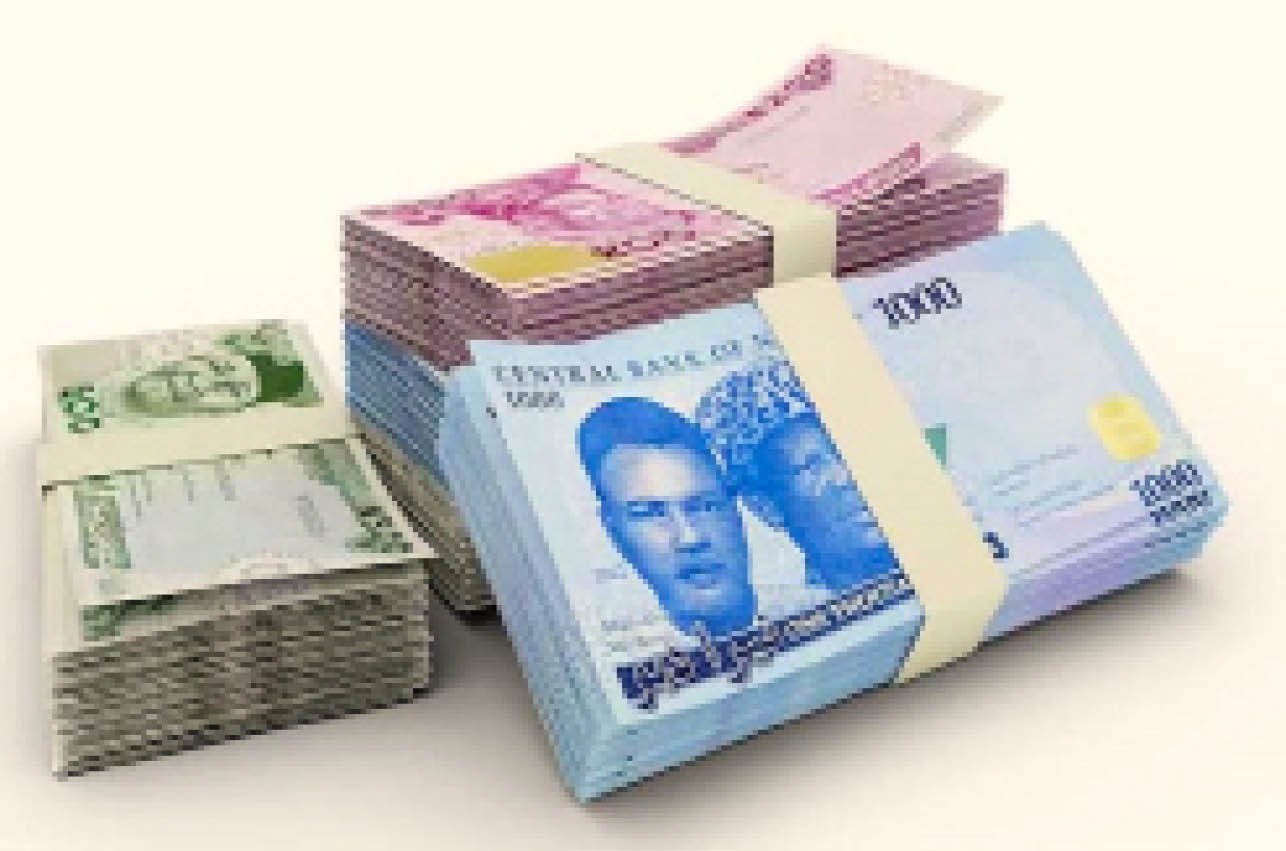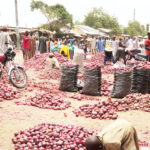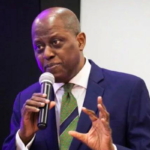The year 2023 was a challenging year for the global economy as inflation, rising interest rates, tight labour markets and geopolitical shocks hit forecasts and caused uncertainties.
Nigeria, the largest economy in Africa was not exempted from these challenges as the country’s financial sector witnessed some highs and lows in the year in review. Some of the major highlights include:
Naira redesign and cash withdrawal limit
The year started on a turbulent and controversial note as businesses and families were subjected to anguish over the naira redesign and cash withdrawal limit policy by the Central Bank of Nigeria.
The then governor of the CBN, Godwin Emefiele, had announced that the old N200, N500 and N1,000 notes would cease to be legal tender in the country after January 31, 2023, which was later extended to February 10 following the redesign of the three out of the existing eight banknotes in December 2022
The apex bank had said the redesign of the notes was a crucial step towards bringing back large volumes of money circulating outside the banking system as it claimed that about 85 per cent of the N3.23tn currency notes in circulation were outside the vaults of commercial banks across the country as of the end of September 2022.
The redesign policy with the complementary policy involving cash withdrawal limits led to a massive scarcity of the naira notes in circulation.
As the scarcity stifled economic activities, Point of Sales (PoS) operators raised charges on transactions by as high as 500 per cent in some places.
The frustration of not getting cash soon turned to anger as protests emerged in states while attacks and looting of bank premises were also witnessed. There were viral videos of bank officials jumping fences among other tactics to avoid mob action.
A landmark ruling by the Supreme Court in March extending the validity of the old banknotes to December 31, did little to curb the scarcity.
In November, the apex court reviewed this judgment and ruled that the old notes should remain legal tender until they are replaced with the redesigned notes.
However, the period of the naira scarcity witnessed a spike in digital transactions as more Nigerians embraced alternatives to cash.
Emefiele’s drama
It comes as no surprise that days after he was sworn in as the President of the Federal Republic of Nigeria, Asiwaju Bola Tinubu suspended Emefiele. He was subsequently arrested, detained and prosecuted by the Department of State Services (DSS). His arraignment in court was high drama in the year, of which the climax was on July 25 when DSS agents and prison officials fought over the custody of the embattled former CBN governor after Justice Nicolas Oweibo had granted him bail in the sum of N20m and a surety in like sum as well as a signed warrant for his remand at Ikoyi prison, Lagos, pending the perfection of his bail.
Emefiele, who had spent time in the custody of the DSS and the Economic and Financial Crimes Commission (EFCC) since his arrest in June, finally regained freedom on December 22 from Kuje prisons where he was remanded in November after the Federal Capital Territory High Court granted him N300m bail.
Emefiele is standing trial on six counts charges bordering on procurement fraud to the tune of N1.2bn.
New helmsman, new ideas
The exit of Emefiele led to the emergence of a new leadership at the CBN. Following Emefiele’s suspension, Tinubu appointed Mr Folashodun Adebisi Shonubi as the acting governor of the bank.
Until his appointment, Shonubi was the Deputy Governor, Operations Directorate.
However, the Senate in September confirmed the appointment of Olayemi Cardoso as the governor of the apex bank.
The Godswill Akpabio-led Red Chamber also confirmed the appointments of Emem Usoro, Muhammed Abdullahi-Dattijo, Philip Ikeazor and Bala Bello as deputy governors of the apex bank.
Tinubu had nominated them for the positions on 15 September pending confirmation of the Senate.
Unlike Emefiele, the Cardoso-led team said the CBN will discontinue direct quasi-fiscal interventionist activities and instead utilize orthodox tools for implementing monetary policy.
It said the monetary policies of the bank will aim to achieve price stability, foster sustainable economic growth, stabilize the exchange rate of the naira, and reduce interest rates to facilitate borrowing and investments in the real sector.
It also planned to increase the capital base of commercial banks in the coming months.
Inflation, poverty and loans
Nigeria’s headline inflation hit a 20-year high of 28.2 per cent in November, as the country’s economic woes push more people into poverty and expensive emergency loans to cover the cost of essentials.
In its report, the National Bureau of Statistics (NBS) said the headline inflation rate increased to 28.20% in November relative to the October 2023 headline inflation rate which was 27.33 per cent. It was the 11th consecutive rise this year, equaling the rate of August 2005.
The rise in food inflation was steeper at 32.84 per cent year-on-year, which is 8.72 per cent higher than the 24.13 per cent food inflation rate recorded in November 2022.
The World Bank said “entrenched inflation” in 2023 had driven an additional four million Nigerians into poverty. Some 63 per cent, or about 133m people, were already “multidimensionally poor,” according to government statistics, creating fertile conditions for lenders to capitalise on.
A survey conducted by Lagos-based SBM Intelligence revealed that 27% of Nigerians now depend on loan apps to buy food and meet other expenses for their survival.
Raising interest rate
Just like other central banks around the world, the CBN increased interest rates across 2022 and 2023 to curb inflation.
For the seventh consecutive time since April 2022, the CBN in July raised its benchmark interest rate, the Monetary Policy Rate (MPR) in a bid to curb inflation.
However, since it was raised to 18.75% in July at its 292nd meeting, the Monetary Policy Committee of the apex bank did not meet again.
Floating the naira
In line with the policy direction of President Tinubu, the CBN announced the unification of all segments of the foreign exchange (FX) market in June, two weeks after Daily Trust exclusively reported that the naira had been devalued.
The policy has led to the weakening of the naira across all market segments, depreciating by more than 85% at the official market (Investors and Exporters, I&E window).
The Titan takeover
The year also saw the acquisition of the 106-year-old Union Bank of Nigeria by Titan Trust Bank Limited which commenced operations in October 2019.
UBN in November announced the delisting of its shares from the Nigerian stock market.
Naira scarcity returns
The year is ending the same way it started with the return of naira scarcity in major cities across the country, despite data from the CBN showing that the currency in circulation (CIC), has peaked to the pre-naira redesign era, as there was N2.99 trillion in circulation as of October 2023.
Emefiele’s sins
While the scarcity of the naira has returned, ex-governor of the CBN, Emefiele, is dominating the news again as details emerge from the report submitted to President Tinubu by the Special investigation panel on the CBN and related entities.
In the report, titled “Report of the Special Investigation on CBN and Related Entities (Chargeable offences)”, the panel chaired by Jim Obazee, among other things accused Emefiele of consenting to the unlawful removal of $6.23m from the vault of CBN office in Abuja, using ill-gotten wealth to acquire banks (UBN and Keystone Bank) for himself through proxies; and lodging billions of naira in foreign currencies in no fewer than 593 bank accounts in the United States, United Kingdom and China without the approval of the apex bank’s board of directors and the CBN Investment Committee.

 Join Daily Trust WhatsApp Community For Quick Access To News and Happenings Around You.
Join Daily Trust WhatsApp Community For Quick Access To News and Happenings Around You.


